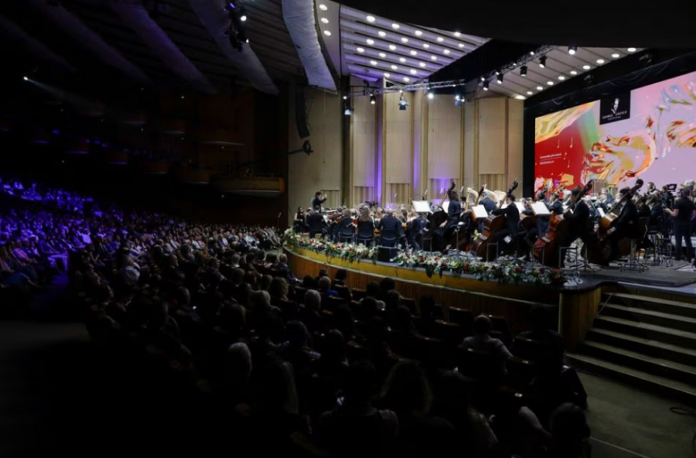As this year’s George Enescu Festival winds down in Romania‘s capital city, organizers of one of Europe’s biggest classical music events are already training their sights on the next edition of the festival to be held in 2025, according to Reuters.
The 27th Enescu festival, a biennial event, could bring in American orchestras for the first time in years, said Cristina Uruc, one of the main planners, alongside established festival performers.
„Maestro Macelaru very much wants to invite American orchestras, it has been a while since they performed here and they were always appreciated by the public,” she told Reuters on Thursday, referring to conductor Cristian Macelaru, the event’s artistic director.
The 26th Enescu festival, named after Romania’s most famous composer and begun in 1958, ends on Sunday with a performance by the Dutch-based Royal Concertgebouw Orchestra. Throughout September, it has brought to Bucharest 3,500 artists from 51 orchestras, including the London Symphony Orchestra and Rome’s National Academy of Santa Cecilia Orchestra under conductors including Simon Rattle, Zubin Mehta and Vladimir Jurowski.
International artists including pianists Yuja Wang and Martha Argerich and French cellist Gautier Capucon have returned.
Uruc said a new concert hall, which has been promised by successive governments but so far unrealized, would help draw in orchestras from afar.
Musicians currently perform in the 4,000-seat Sala Palatului hall, built in 1960 for Communist Party meetings and not known for good acoustics.
„It is the elephant in the room,” said Uruc, the director of Artexim, the Enescu festival’s organizer. „If we had a proper concert hall, top orchestras could play in Bucharest outside the festival as well, we could build on the classical music tradition this festival has created.”
Asked whether the rise of generative artificial intelligence threatened classical music performances, one artist at the festival said he was not concerned.
„Sometimes artificial intelligence is amazing,” cellist Capucon said. „Regarding us and specifically playing an instrument and conducting an orchestra … there is one thing which you can never copy, which is emotions.”
„I don’t think we will be still alive when a machine will be able to share emotions and make people smile and cry and experience the music.”


